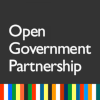Public Service as the Backbone of Open Government: The Importance of Supporting a Solid Foundation
In October 2015, Canada oversaw a change in government as Canadians elected Justin Trudeau and the Liberal Party. Built on a platform of “real change,” the party’s win can be attributed in part to its commitments of a more open and transparent government. As a fairly broad concept, there are numerous factors which contribute to what is considered open government. Some of the more notable elements include: transparencyAccording to OGP’s Articles of Governance, transparency occurs when “government-held information (including on activities and decisions) is open, comprehensive, timely, freely available to the pub... More, accountability, access to information, open dataBy opening up data and making it sharable and reusable, governments can enable informed debate, better decision making, and the development of innovative new services. Technical specifications: Polici..., and civic engagement. However, one of the fundamental pieces missing from most of the conversations surrounding this topic is the role the public service plays in implementing open government.
The public service, also known as the civil service, is a bureaucracy consisting of departments, agencies, and crown corporations. In Westminster-style democracies, like Canada, the non-partisan body has an integral role in supporting the development, implementation, and enforcement of government policies. I argue that, given the essential part the public service plays in policy-making, it cannot be overstated that the public service is an essential piece of the open government puzzle — its active role helps create policies built on the principles of open government. But, I believe that in order for public servants to implement policies driven by these principles, they need to possess an understanding of what open government entails. Each civil servant needs to have a solid foundation of the principles on which their work will be built, of the tools which bring their work to life, and across each organization there needs to be a positive attitude associated with open government. If we want to see an open government, we need to support, and encourage, the culture change that will make it happen.
Fortunately, I’m not the only one who feels this way: the Government of Canada has identified this necessity as well. It has started to implement changes which address building this foundation that will be accessible for every civil servant. In particular, significant progress stems from the Third Biennial Plan submitted to the Open Government Partnership. The Treasury Board Secretariat of Canada (TBS), on behalf of the Government of Canada, pledged to advance open government through an ambitious goal of twenty-two commitments filed under five priorities: open by default, fiscal transparency, innovation, prosperity and sustainable development, and engaging Canadians in the world. The sixth commitment, categorized under the aforementioned priority of “open by default,” is to develop open government skills across the federal public service.
As described by TBS, this commitment states that “public servants in the Government of Canada must change how they design and deliver programs and services to support Canada’s commitments to transparency and public engagement. An openness mindset needs to be integrated into day-to-day business activities.” In order to achieve this goal, the Government of Canada has proposed that it will support a shift towards greater transparency and engagement within the public service through learning materials and opportunities.
The importance of this commitment was reiterated in a letter from Suzanne Legault, the Information Commissioner of Canada, to Scott Brison, the President of the Treasury Board of Canada. The letter expresses that “this commitment is a step in the right direction.” Further, she expresses that the commitment will “ensure that the government develop an integrated vision for open government such that the implementation of all policies that are intrinsically connected to open government such as communications, information management and access to information work seamlessly together.”
So far, the Government of Canada has implemented the following initiatives:
- Providing enhanced information management and additional materials to raise public servants’ awareness and understanding of open government principles and practices
- Leading and/or participating in educational forums and workshops designed to further the understanding of how to increase government transparency and foster civic engagement
- Considering feedback on how software solutions, including open source, can be best leveraged to meet strategic objectives
I think that with this commitmentOGP commitments are promises for reform co-created by governments and civil society and submitted as part of an action plan. Commitments typically include a description of the problem, concrete action..., based on the initiatives already established, the Government of Canada is well underway in providing the tools that public servants need to be better equipped in applying open government principles in their day-to-day work. This, in turn, will help provide Canadians with easier access to government. Moving forward, I believe that this commitment to open government and the provision of these standardized actions needs to be sustained from all current and future government leaders as they take office, regardless of political affiliation.
From the perspective of a Canadian, our country has an open government framework and an intelligent and effective civil service: there is no excuse for poor understanding of open government within the institution. From the perspective of an individual who recognizes the importance of open government, I believe that we all have the obligation to ensure that our governments fulfill the promises they make to us – but to do this we must also ensure the people doing the work have the tools they need. We cannot turn a blind-eye any longer to the backbone of open government.
